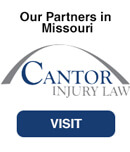Dangers of Working with Formaldehyde
Formaldehyde continues to be a frequently needed chemical in many workplaces, plants, and manufacturers around Pennsylvania and the rest of the nation. In fact, formaldehyde has many uses for modern consumers and commercial enterprises. At the same time, formaldehyde should be considered potentially dangerous to workers consistently around the substance. In fact, the Occupational Safety and Health Administration (OSHA) warns employees about the need to limit their exposure to formaldehyde.
Formaldehyde OSHA Limits and Guidelines
To help workers and employers understand how to best work with formaldehyde, OSHA has proposed limitations, rules, and framework for appropriate exposure. OSHA’s acceptable eight-hour shift exposure limit is 0.75 parts per million (ppm). However, 15-minute exposure limits of 2.0 ppm may be allowable from time to time. When formaldehyde exceeds expected limits, the area and any employees should be surveilled and treated as appropriate.
How Formaldehyde Exposure Occurs
Normally, formaldehyde exposure happens in one of two ways. The first is through airborne means, such as breathing in formaldehyde fumes. The second is through dermal contacts, such as when a liquid solution that consists of formaldehyde is placed on the skin. Either type of exposure can lead to a wide range of physical problems requiring attention or, in extreme cases, emergency treatment.
As a strong-smelling gas that can also be used in liquid form, formaldehyde can cause instant, intense reactions in people. In addition to eye and nasal irritation, formaldehyde can lead to respiratory responses, including coughing, gagging, and wheezing. It can also cause itching, even in low exposure amounts. In more serious circumstances, such as when a person with compromised immunity encounters formaldehyde, the chemical can induce life-threatening allergies and reactions. Formaldehyde should never be knowingly ingested, as it can lead to death.
Strong evidence points to formaldehyde as a carcinogen or cancer-causing chemical. Workers frequently exposed to formaldehyde that develop any type of cancer may want to speak with a Workers’ Compensation attorney to discuss the possibility of recovering compensation through a Workers’ Compensation claim.
Ways to Protect Against Formaldehyde Exposure
Individuals who commonly use or work around formaldehyde can protect themselves against the chemical’s unwanted effects by wearing proper personal protective equipment as expected, making sure all items containing formaldehyde are properly stored and labeled, and following training protocols when exposed to formaldehyde.
Workers who believe that they were medically compromised by long-term exposure to formaldehyde should speak with their personnel managers about reassignment to give them time to heal under a physician’s care. In some cases, treatment may include time away from the job site, which may fall under the auspices of Workers’ Compensation benefits.
Philadelphia Workers’ Compensation Lawyers at Gross & Kenny, LLP Assist Employees Exposed to Formaldehyde
If you had a serious reaction related to the exposure of formaldehyde in your workplace, contact the Philadelphia Workers’ Compensation lawyers at Gross & Kenny, LLP. We will review your case and obtain the benefits that you deserve. Call us at 215-512-1500 or complete an online form for a free consultation today. Located in Philadelphia, we serve clients throughout Pennsylvania.



